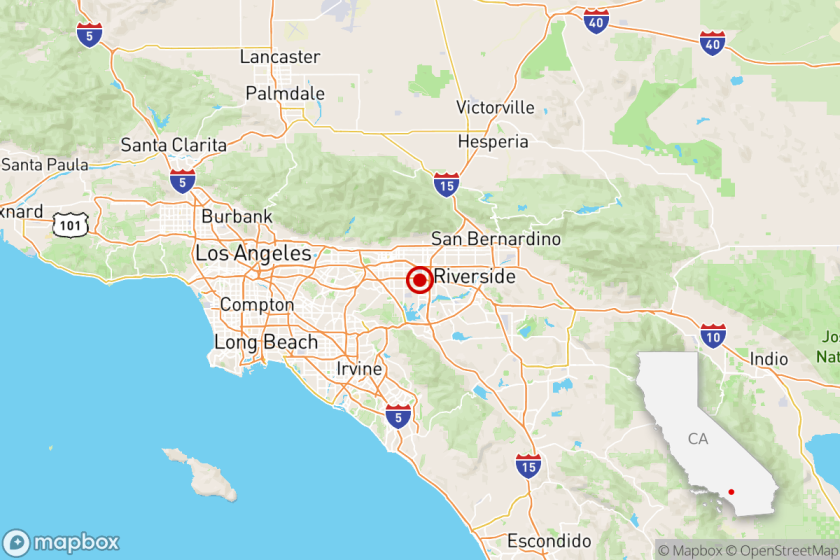Ex-Justice’s Project : Grodin Wants to Spotlight State Courts
The inspiration came to Joseph R. Grodin as he was vacationing on the beach at Bali, contemplating the future just after his ouster from the California Supreme Court in the November election.
Grodin decided that upon resuming his career as a law professor he would write a book on state courts--with special attention to the origins of the California Constitution.
Thus, while the nation has been celebrating the 200th birthday of the U.S. Constitution, the former justice has been immersed in study of this state’s founding document.
He has pored over records and reports and even visited the yellow sandstone building in Monterey where delegates from throughout the California Territory gathered in a second-floor room 138 years ago to debate and draft the new charter.
As a result, Grodin has now become a staunch advocate of the independence of state courts, adding his own support to the theory that the California Constitution has a life of its own, separate and distinct from the federal Constitution.
The 57-year-old jurist-turned-scholar is also concerned that too little attention is given to the state Constitution--and hopes to produce a book that will help fill the void in the public’s understanding of the state judicial process.
“There’s a big gap in between the public attention to the U.S. Supreme Court and the People’s Court of Judge Wapner,” Grodin said in a wry reference to the popular television show. “State courts tend to be overlooked.”
When Grodin first joined the state Supreme Court in 1982, the justices had already established a nationwide reputation for judicial pioneering, asserting the doctrine of “independent state grounds” to extend greater individual liberties under the state Constitution than the U.S. Supreme Court required under the federal Constitution.
Among other things, the state high court had invoked the California Constitution to give low-income women the right to state-funded abortions and to grant political activists access to privately owned shopping centers.
Now, the new and more conservative court may be ready to cut back on the use of the doctrine. For example, the justices are considering whether to overturn a past ruling and to allow--as permitted by the U.S. Supreme Court--the use of improperly obtained confessions to impeach a defendant who testifies at a trial.
For his part, Grodin does not expect the new court to depart often or sharply from previous rulings based on independent state grounds--such as the decision granting access to shopping malls.
“That ruling is so much a part of California law, and with the blessing of the U.S. Supreme Court (which allowed the decision to stand), it would surprise me if the new court suddenly overturned it,” he said.
‘Became Fascinated’
Grodin’s own support of the doctrine had been lukewarm--until after he left the court and began going through the proceedings of the state Constitutional Convention of 1849 and a second convocation 30 years later when the document was revamped.
“I just became fascinated with the characters and the atmosphere at the time,” he recalled during a recent interview in his office at Hastings College of the Law here. “They were an interesting group . . . and for the most part, the people who played this role in the founding of the state were not lawyers or constitutional scholars.”
At the head of their agenda was the drafting of the Declaration of Rights, guaranteeing this state’s citizens the rights of free speech, press, religion, assembly and other liberties.
In reading the debates that took place at Monterey, Grodin was struck by how often the framers drew from constitutions of other states--mainly New York and Iowa--even though the language itself was similar or even identical to the federal Constitution.
To Protect Rights
The delegates were not really looking to the U.S. Constitution to protect their rights and liberties, he concluded. In fact, it would be many decades later before the U.S. Supreme Court began to make provisions of the Bill of Rights in the federal Constitution applicable to the states.
Grodin acknowledges that there is a strong case to be made for state courts to defer to the U.S. Supreme Court when they are interpreting state constitutional provisions that are similar or identical to those of the federal document. That approach promotes uniformity and reduces confusion in the law.
But on the other hand, he asked in a recent speech here before the American Judicature Society, why should a state court feel bound by a 5-4 decision by the federal court when it may agree with the reasoning of the dissenters?
Further, he argued, the U.S. Supreme Court may be hesitant to intrude too deeply into state affairs by imposing far-reaching federal constitutional requirements. State courts can step forward to fill that void by invoking their own constitutions to protect individual rights, he said.
Grodin plans to include all this and much more in the book he hopes to complete by the end of the year.
The book--as yet untitled--will be aimed at the general public, as well as the legal community, and will draw heavily on Grodin’s experience as a lawyer, law professor and justice on both the state Court of Appeal and Supreme Court.
“I want to talk about the kind of problems judges confront and the kind of system we have,” he said.
Views on His Defeat
He will, of course, discuss the election campaign that led to his defeat and that of former Chief Justice Rose Elizabeth Bird and Justice Cruz Reynoso. And yes, he will discuss the role of Gov. George Deukmejian, a leading critic of the liberal-dominated court under Bird and who publicly opposed the three justices, who later were defeated.
In a meeting with reporters last November, Grodin said he believed that he would have been confirmed by the voters had he not been caught up in a wave of opposition to Bird. Grodin also accused Deukmejian of distorting Grodin’s record on the death penalty to gain the opportunity to fill another vacancy on the court.
For all that, Grodin appears quite content in his new role as as a scholar, author and professor. He is teaching classes this fall on judicial process and labor law, and he relishes the opportunity to examine state constitutional issues in the classroom.
“Most courses in constitutional law seldom mention state constitutions,” he said. “And most law schools don’t go out of their way to teach anything about the distinctive nature of state constitutions, particularly when it comes to the human rights area.”
More to Read
Sign up for Essential California
The most important California stories and recommendations in your inbox every morning.
You may occasionally receive promotional content from the Los Angeles Times.










